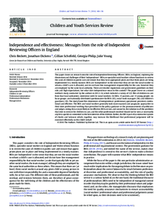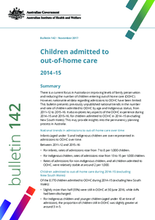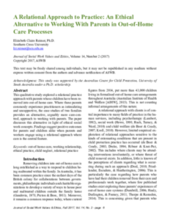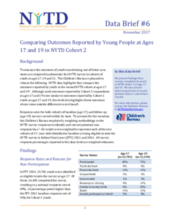Displaying 1481 - 1490 of 2221
The paper draws on a mixed methods study the role and effectiveness of Independent Reviewing Officers in England.
The objectives of this study are to: use the methodology of a 2007 study to establish foster care minimum adequate rates for children (MARC) based on the child's age and geographical location in every state; update the MARC with cost of living adjustments to 2016; examine changes in gaps between the MARC and the current foster care rates; and identify states that have made increases to their reimbursement rates, relative to the MARC over time.
This study examined predictions of externalizing behaviors (EB) from childhood to adolescence/young adulthood from temperament, preadoption maltreatment, and adoptive family cohesion.
The objectives of this study are to: use the methodology of a 2007 study to establish foster care minimum adequate rates for children (MARC) based on the child's age and geographical location in every state; update the MARC with cost of living adjustments to 2016; examine changes in gaps between the MARC and the current foster care rates; and identify states that have made increases to their reimbursement rates, relative to the MARC over time.
This bulletin presents previously unpublished Australian national trends in the number and rate of children admitted to out-of-home-care by age and Indigenous status, from 2011–12 to 2015–16.
This qualitative study explored a relational practice approach with parents whose children have been removed into out-of-home care in Australia.
This data brief presents data highlights that compare the outcomes reported by youth in the second NYTD cohort at ages 17 and 19.
The Verbatim Formula is an applied performance research project which is currently working with looked after children and young people.
This study explores self-stigma in the utilization of mental health services while in foster care and whether the stigma developed while in foster care impacts mental health service use upon foster care exit.
This study sought to identify factors that contribute to the relational well-being of youth in substitute care.




